Doctor of Medical Sciences Researches the Potential of Native Indonesian Probiotics as Adjuvant Therapy for Diabetes in Pregnancy
Located in the Postgraduate Hall, 3rd Floor of the Postgraduate Building, Udayana University, the Doctoral Program in Medical Sciences, Faculty of Medicine, Udayana University held an open examination for Research-Based Doctoral Promotion (Research) with the candidate for promovendus, dr. Arresta Vitasatria Suastika, Sp.OG, with the dissertation title "The Effects of Lacticaseibacillus Rhamnosus and Weissella Confusa on Glucose Metabolism and Inflammatory Markers in Wistar Rats with Diabetes". (2/17/2025)
A number of studies have explored the beneficial roles of probiotics and synbiotics in cases of diabetes, such as reducing fasting blood sugar, insulin resistance, and inflammatory markers. However, studies using native Indonesian probiotics for diabetes management are still limited, so we conducted a study to assess the effectiveness of native Indonesian probiotics owned by Udayana University Culture Collection (UNCC), namely probiotics Lacticaseibacillus rhamnosus FBB81 (LrFBB81), Lacticaseibacillus rhamnosus SKG34 (LrSKG34), and Lacticaseibacillus rhamnosus FSMM22 (LrFSMM22) in the first study, while probiotic Weissella confusa F213 (WCF213) in the second study, in a diabetic rat model. In the first study, sixteen female Wistar rats were induced with diabetes using streptozotocin and given a high-fat and high-sucrose diet. The rats were separated into four groups: LrFBB81, LrSKG34, LrFSMM22, and a control group. Rats in the intervention group received a daily dose of probiotic suspension for 14 days, while the control group received normal saline. This study found that LrFSMM22 significantly reduced fasting blood sugar (FBS) and insulin resistance (HOMA-IR) in a diabetic rat model. There was no statistically significant difference in FBS or HOMA-IR levels in the LrFBB81 and LrSKG34 groups. All probiotics showed no significant difference in lipopolysaccharide (LPS) levels, while statistically significant weight loss was observed in all probiotic groups.
Fourteen female Wistar rats were induced using streptozotocin and fed a high-fat, high-sucrose diet and then separated into two groups, an intervention group receiving WCF213 and a control group receiving placebo for 14 days. The levels of FBS, insulin, HOMA-IR, LPS, TNF-α and body weight were measured before and after the intervention. Real-time PCR (RT-PCR) was performed on DNA isolated from fecal samples to detect and quantify the WCF213 population. Administration of WCF213 significantly reduced fasting blood sugar and HOMA-IR post-intervention. The decrease in Δ GDP in the probiotic group was also significant when compared to the placebo group. The placebo group showed significantly higher Δ LPS post-intervention, although only weakly proven when compared to the probiotic group. No differences in insulin, TNF-α, body weight and cecum weight were observed in the third study. RT-PCR confirmed the higher WCF213 population in the intervention group.
This dissertation shows that probiotic strains have different effects and the use of native Indonesian probiotics, LrFSMM22 and WCF213, effectively reduce GDP and HOMA-IR in diabetic mice, indicating their potential as promising adjuvant therapy in cases of diabetes. To explain how probiotics can improve glucose metabolism, further studies are needed, such as in-vitro studies related to inflammation pathways and short chain fatty acids (SCFA) in cases of diabetes, as well as the diversity and abundance of gut microbiota with 16S rRNA Sequencing or Shotgun Sequencing examination.
Officially opened by the Vice Dean for Student Affairs and Information, FK Unud, Prof. dr.I Made Ady Wirawan,S.Ked, MPH., Ph.D, on this occasion Prof. Ady expressed his appreciation and congratulations on the success of dr. Arresta Vitasatria Suastika, Sp.OG in completing his doctoral education and hopes that the results of his research can be useful for clinical practice in the field and benefit the wider community in the future.
This examination was led by the Coordinator of the Doctoral Study Program in Medical Sciences,
Prof. Dr. dr. I Made Jawi, M.Kes., with the examining team:
1. Prof. Dr. dr. I Gde Raka Widiana, Sp.PD-KGH. (Promoter)
2. Prof. Ir. I Nengah Sujaya, M.Agr.Sc,.Ph.D. (Co-promoter I)
3. Dr. dr. A.A. Ngurah Jaya Kusuma, Sp.OG, Subsp.K.Fm,MARS. (Co-promoter II)
Academic invitation:
Prof. dr. Ni Nengah Dwi Fatmawati, S.Ked., Sp.MK(K).,Ph.D
Dr. dr. Made Ratna Saraswati, Sp.PD,KEMD.,FINASIM
Dr. dr. Dyah Kanya Wati, Sp.A (K)
In this exam, Dr. dr. Arresta Vitasatria Suastika, Sp.OG, was declared to have passed as the 444th Graduate Doctor of the Doctoral Program in Medical Sciences, Faculty of Medicine, Udayana University with Cumlaude predicate.
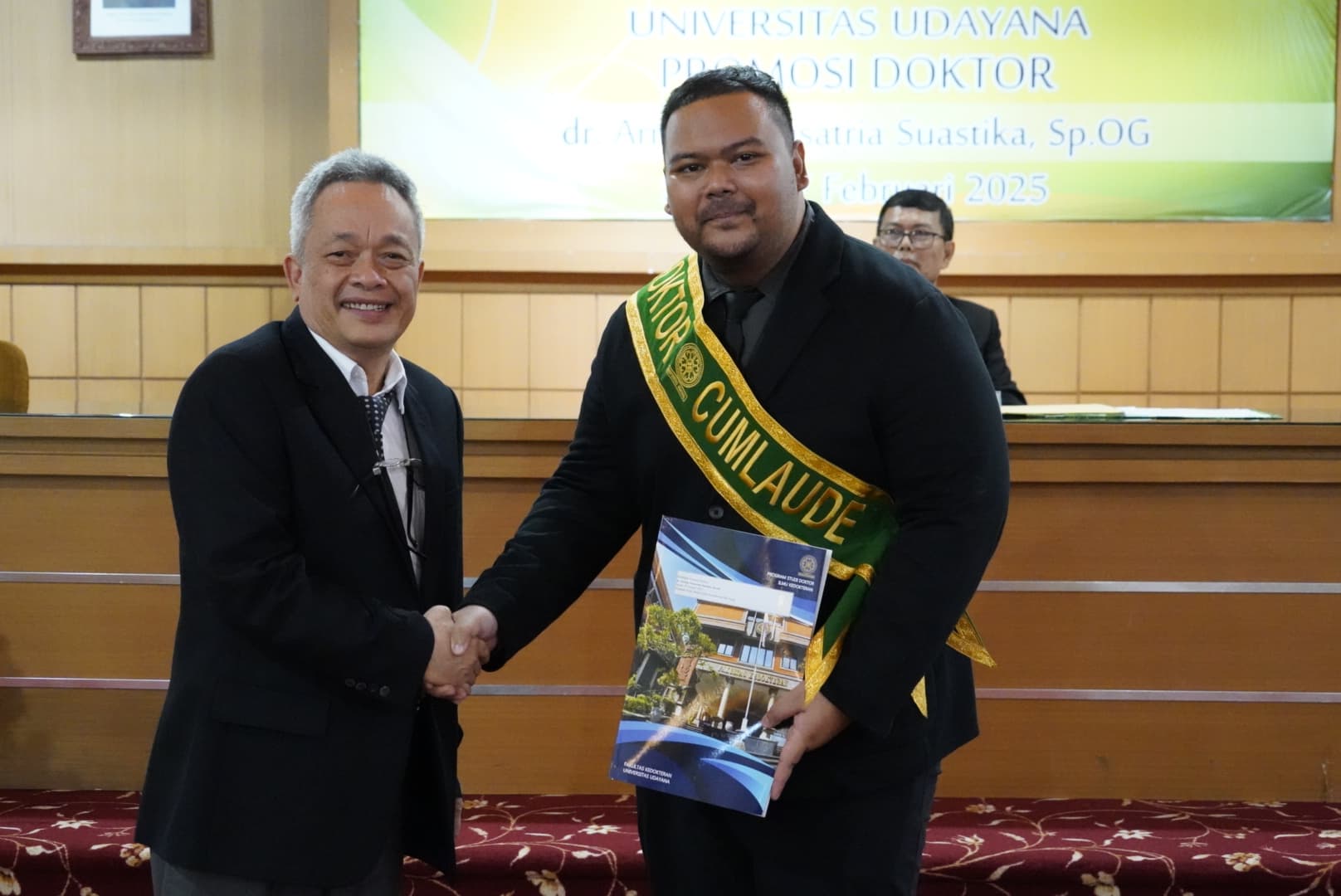

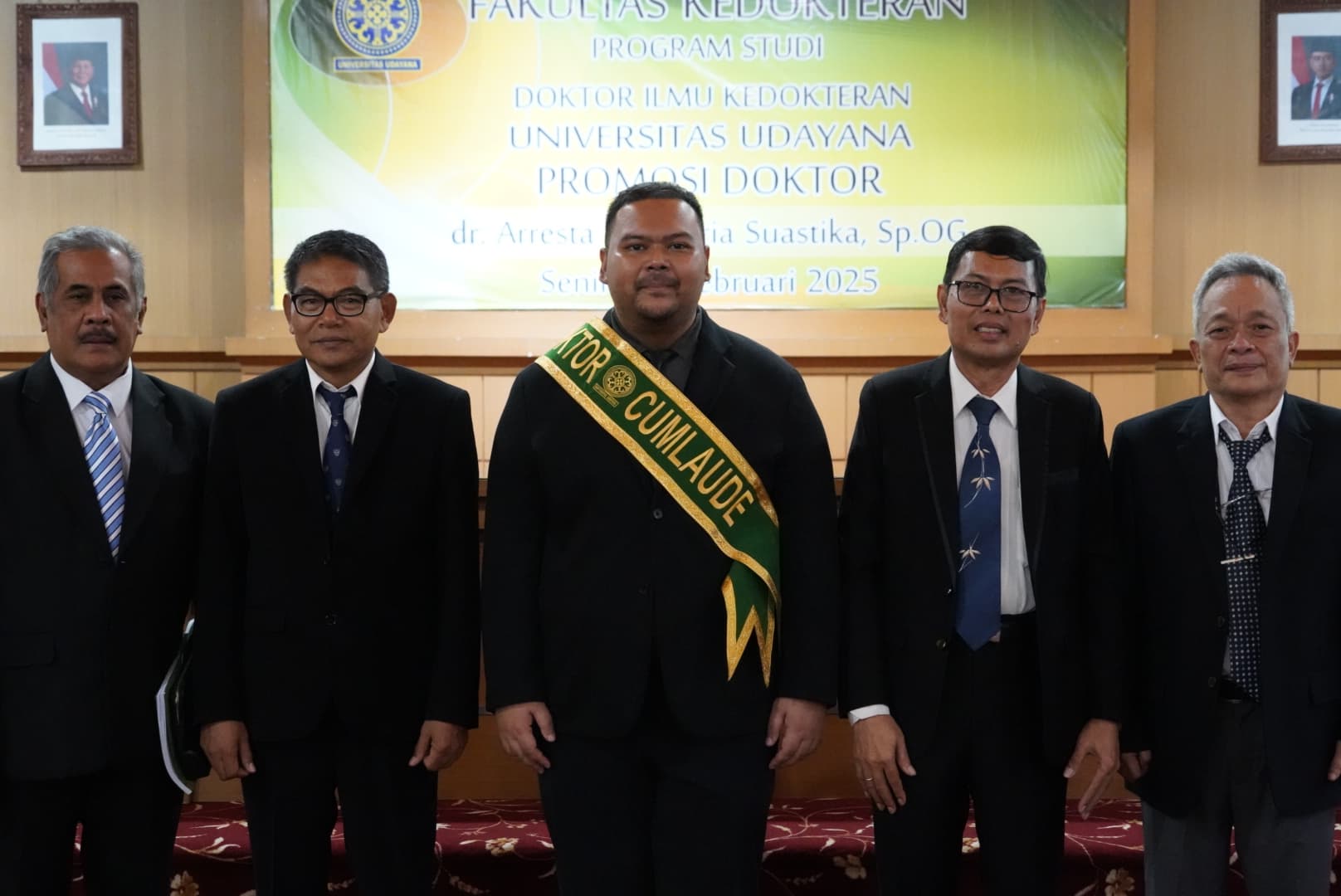
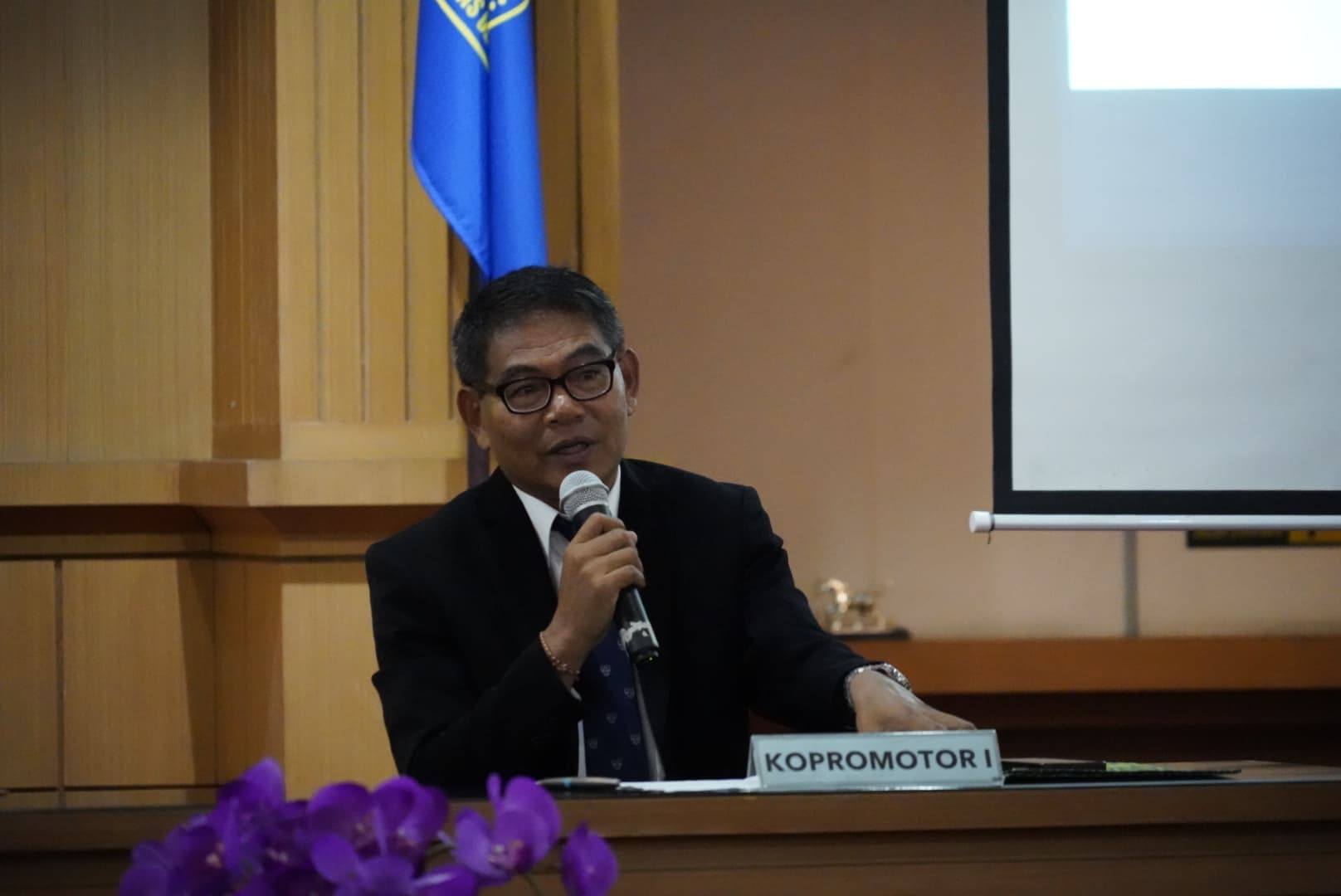
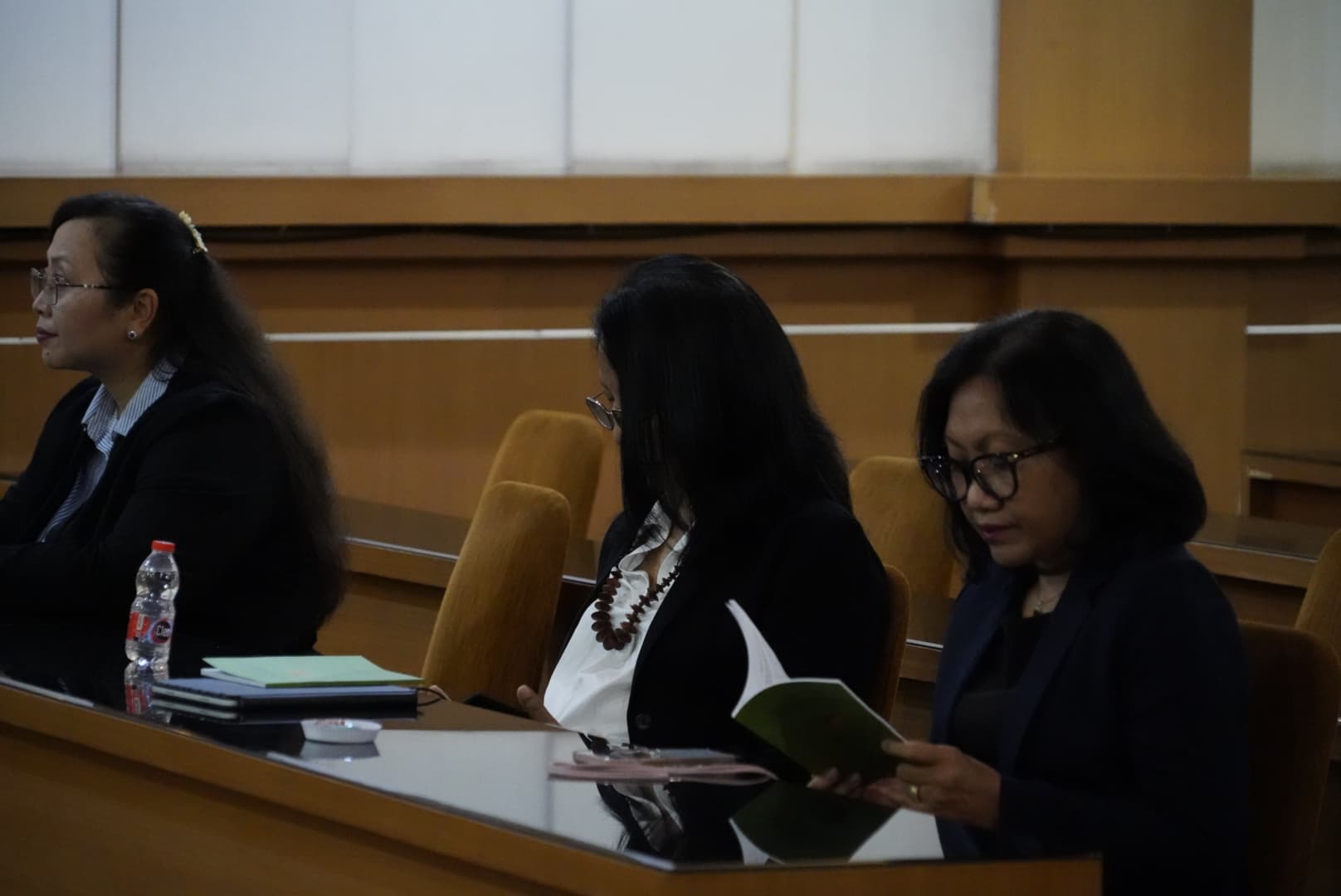
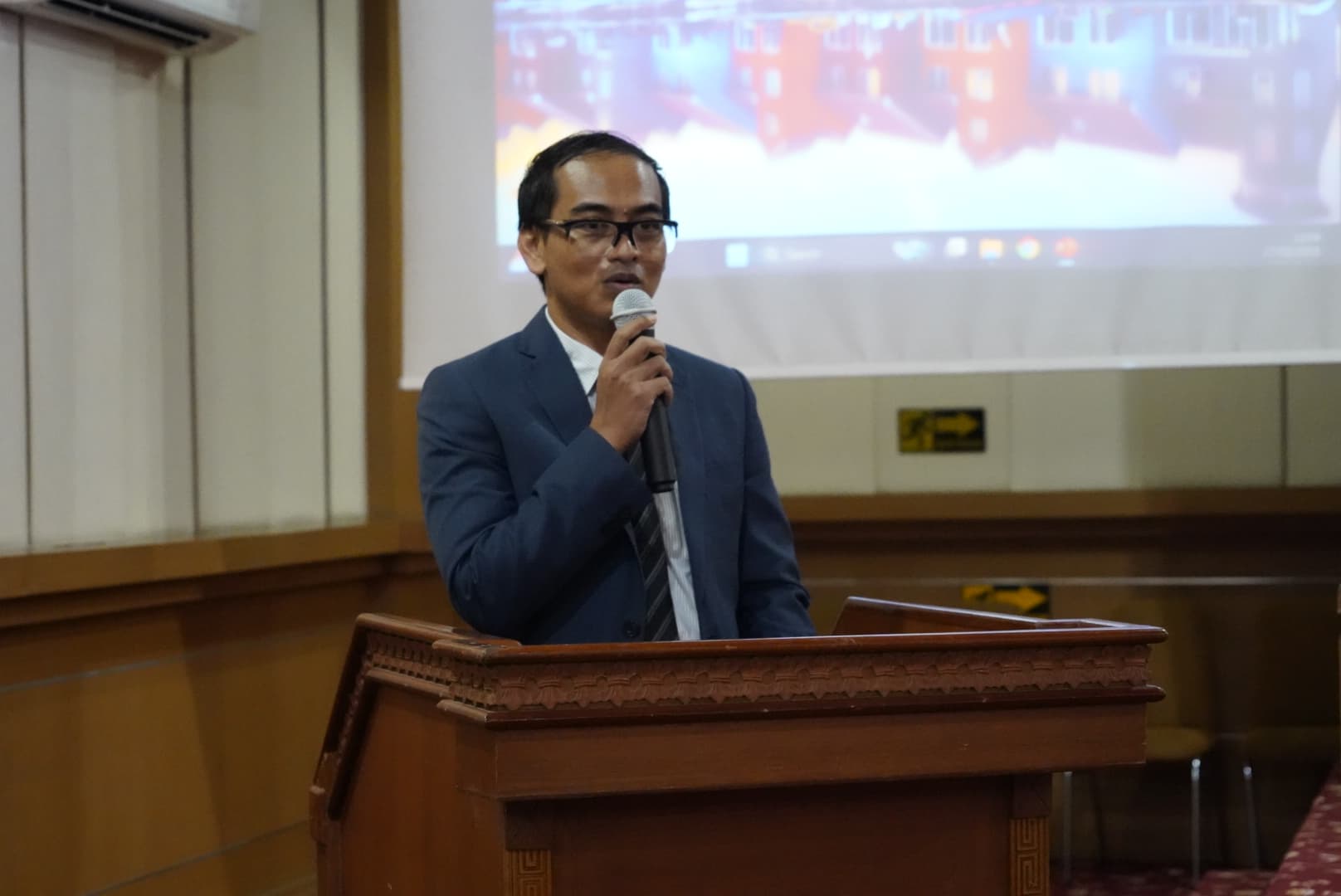
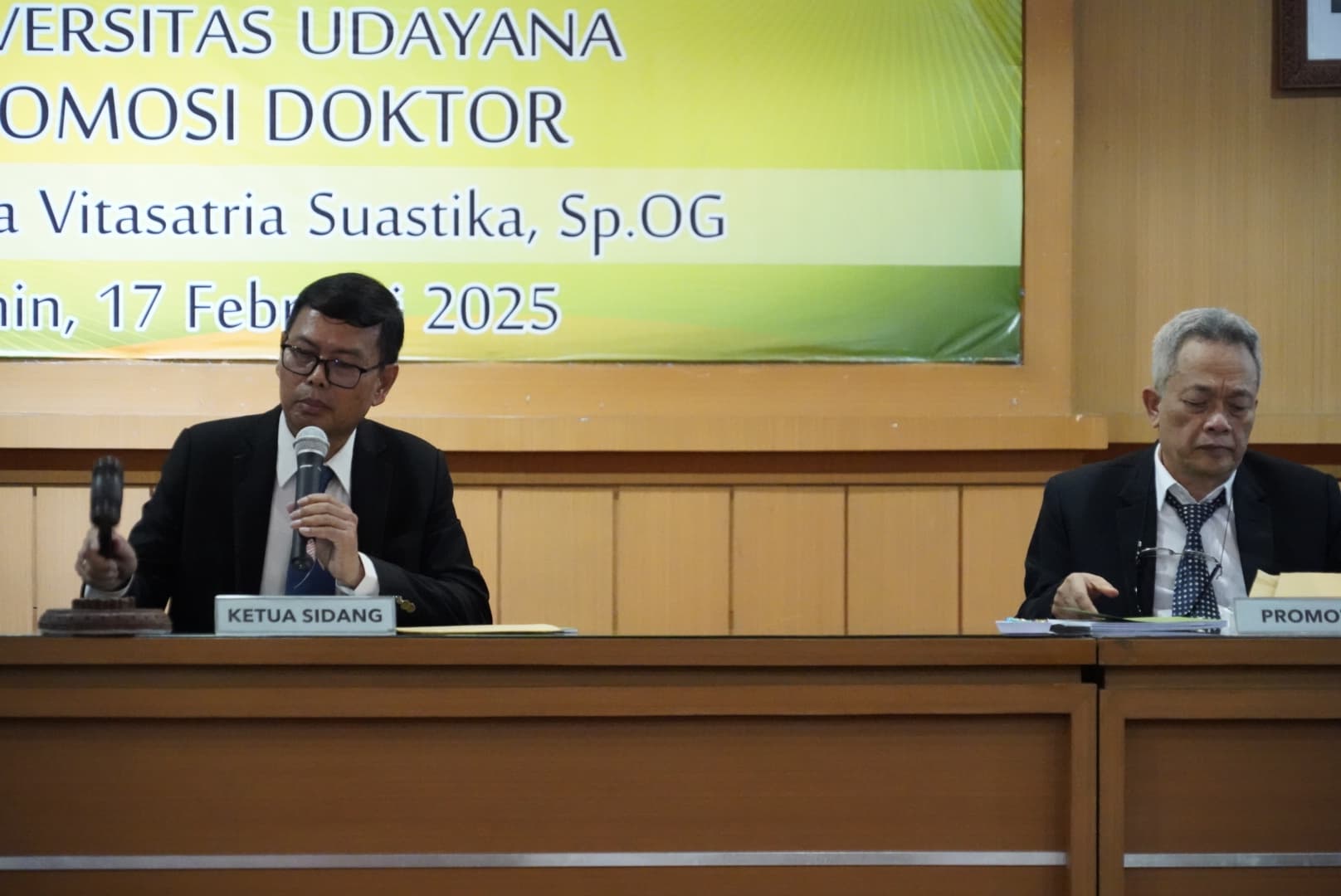

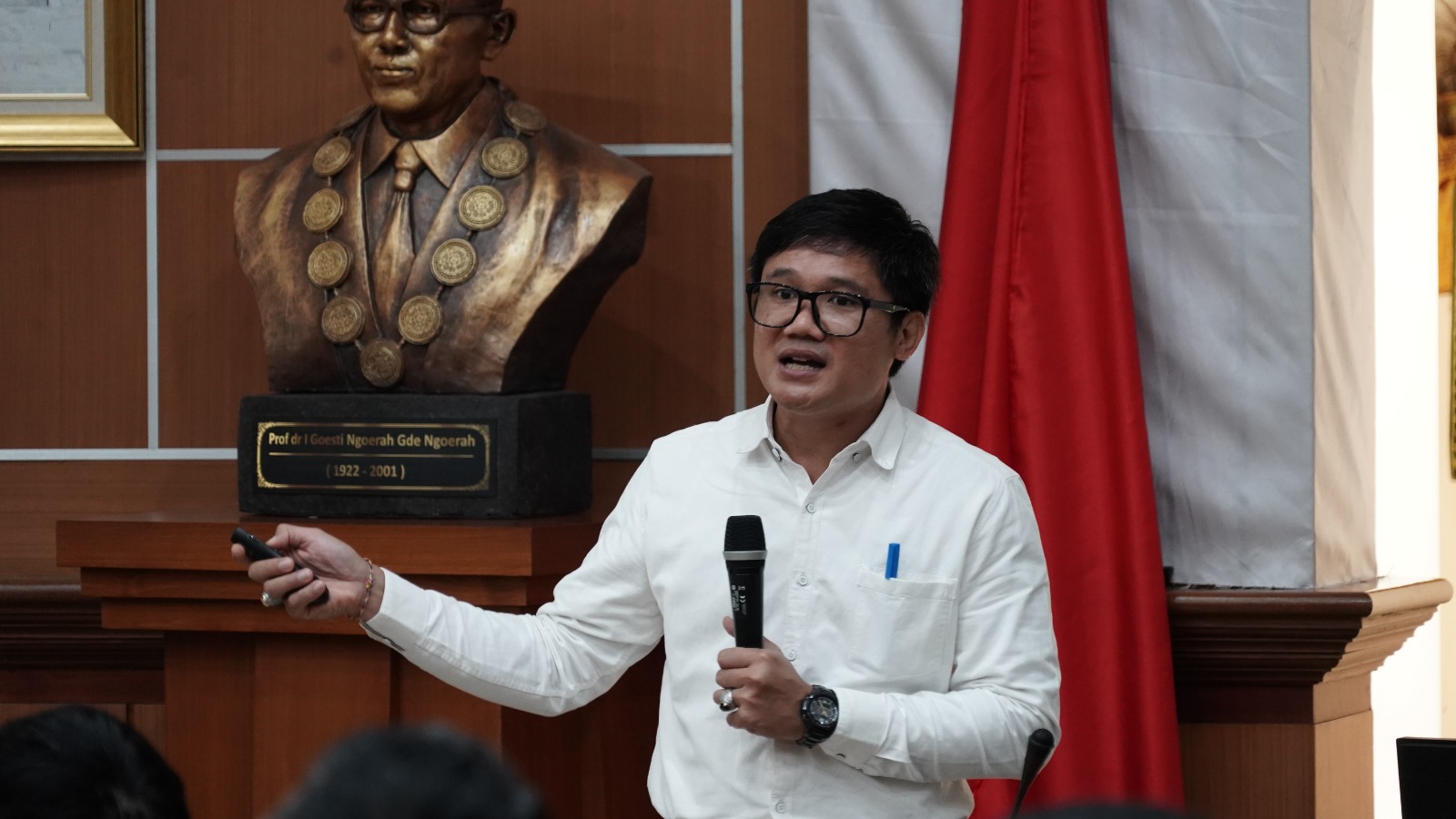
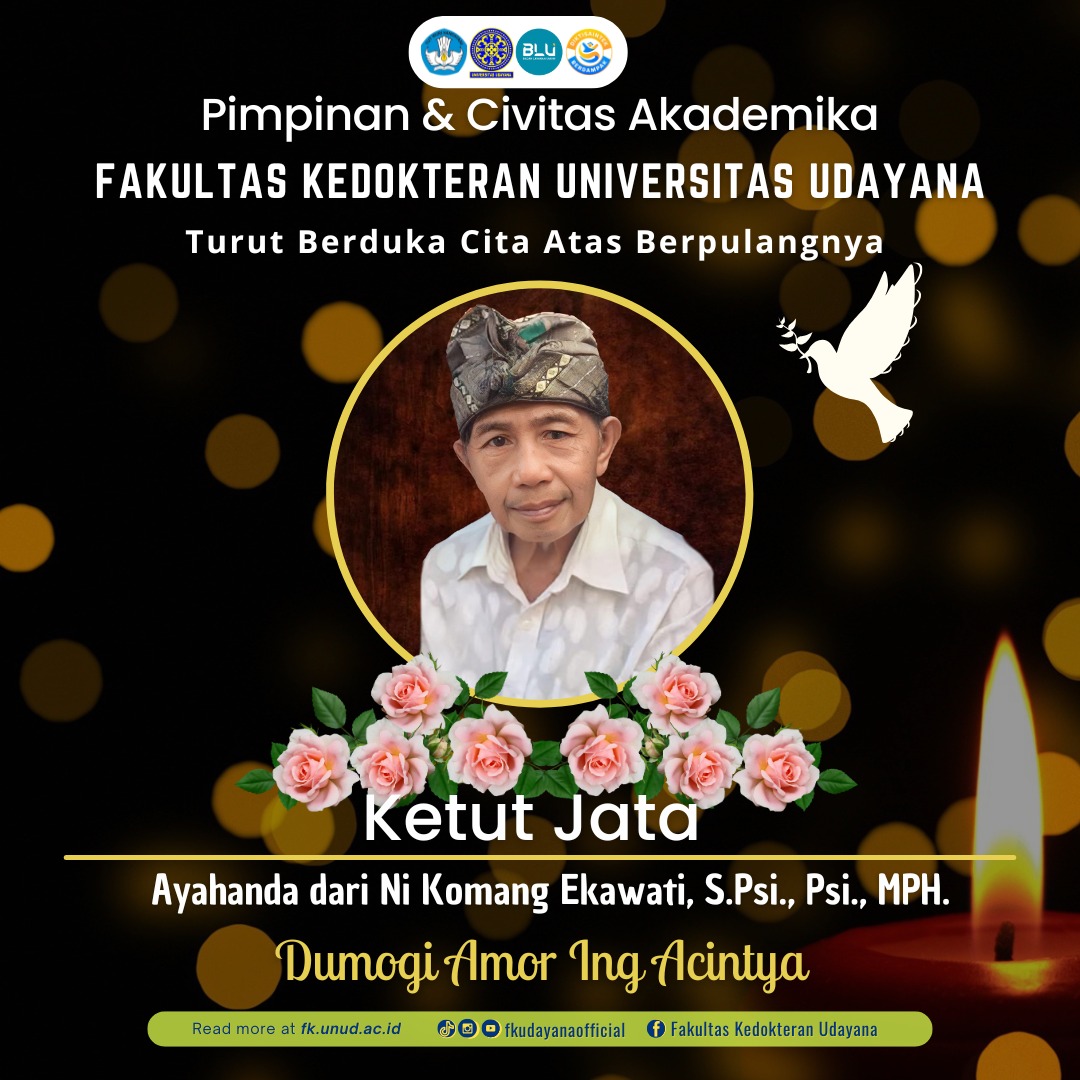
UDAYANA UNIVERSITY